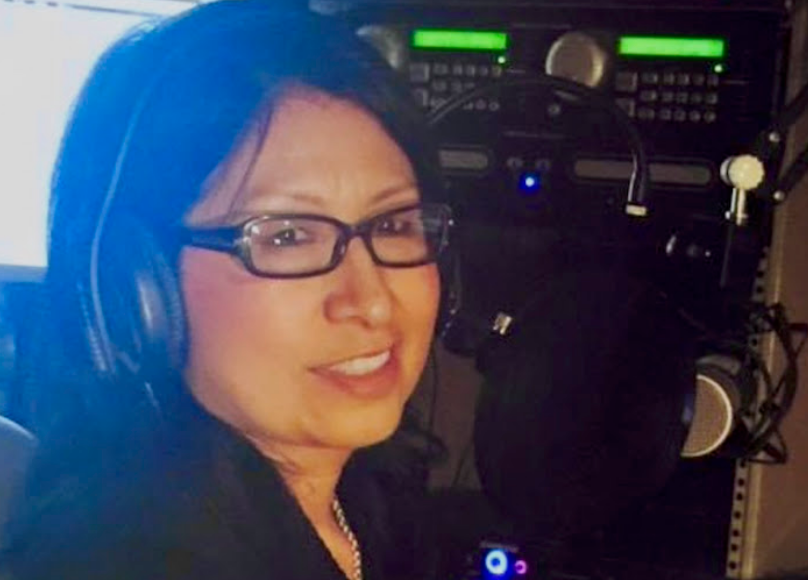
- Details
- By Loris A. Taylor
Guest Opinion. The safety and well-being of missing and endangered adults, particularly Indigenous individuals, remain a pressing concern in the United States. Recent online statistics show that the crisis of Missing and Murdered Indigenous Women (MMIW) continues to persist with alarming numbers. The most current data in 2023 reported over 5,000 unresolved cases of missing and murdered Indigenous women highlighting the urgent need for comprehensive measures to address this crisis effectively.
Many families across Indian Country have been affected by MMIW, including mine. Over ten years ago, my grandfather Eugene left work, never to be seen alive again. Nearly a decade later, our family finally laid his remains to rest. In more recent times, my sister’s goddaughter left her home to get snacks at the corner gas station. She was found deceased with no help forthcoming from local law enforcement. The loss of these two loved ones remains fresh and painful. The MMIW crisis is real, but we can offer answers using the expertise in our wheelhouses.
Last month, Native Public Media launched a national campaign to petition the Federal Communications Commission (FCC) to establish a national emergency Event Code for Missing and Endangered Persons. The MEP Event Code would harness the nation’s most powerful alerting system, the Integrated Public Alert and Warning System (IPAWS).
While some states, such as Colorado, California, and Washington State, have established Event Codes to alert the public about missing and endangered Indigenous adults, the nation requires a unified approach. A national MEP Event Code accessible to all fifty states, Tribes, and U.S. territories will create a consistent, standardized process for addressing emergencies involving missing and endangered Indigenous persons, saving lives, and bringing those responsible to justice.
The Federal Communications Commission (FCC) is pivotal in establishing and maintaining Event Codes used by IPAWS alerting authorities. The Federal Emergency Management Agency (FEMA) provides guidance, ensures standardization, and streamlines the alerting process across states, U.S. territories, and Tribal homelands. IPAWS Alerting Authorities can send alerts to various communication channels, such as cell phones, television, and radio, ensuring a broad reach during emergencies. A National MEP Event Code would enhance the efficiency and effectiveness of these alerts, facilitating quicker responses from the public and law enforcement agencies.
Tribal governments can become IPAWS Alerting Authorities. Tribes possess vital local knowledge and expertise, making their involvement with IPAWS crucial for recovering missing or endangered Indigenous persons. The power of Tribal Nations to issue alerts specific to their communities will enhance the overall effectiveness of alerting the public and improving response times using a nationwide alerting system.
The success of the national Amber Alert Event Code has proven effective in locating missing and endangered children and demonstrates the importance of dedicated nationwide Event Codes for specific populations.
MMIW has become a devastating pandemic, affecting countless families and communities nationwide. Establishing the MEP Event Code, facilitated through the IPAWS platform, is a crucial step towards protecting the lives of adults, particularly Indigenous persons. By involving Tribal Nations and collaborating with the FCC and FEMA in addressing the MMIW crisis, the nation can foster a safer environment and ensure that all individuals receive the protection of public alerts they deserve during emergencies.
A unified approach saves lives and demonstrates our collective commitment to safeguarding the most vulnerable members of society.
Loris Taylor (Hopi/Acoma) is president and CEO of Native Public Media. Her leadership represents the media interests of Native Americans through journalism, public policies, and media technologies of radio, television, and internet.
Help us defend tribal sovereignty.
At Native News Online, our mission is rooted in telling the stories that strengthen sovereignty and uplift Indigenous voices — not just at year’s end, but every single day.
Because of your generosity last year, we were able to keep our reporters on the ground in tribal communities, at national gatherings and in the halls of Congress — covering the issues that matter most to Indian Country: sovereignty, culture, education, health and economic opportunity.
That support sustained us through a tough year in 2025. Now, as we look to the year ahead, we need your help right now to ensure warrior journalism remains strong — reporting that defends tribal sovereignty, amplifies Native truth, and holds power accountable.
 The stakes couldn't be higher. Your support keeps Native voices heard, Native stories told and Native sovereignty defended.
The stakes couldn't be higher. Your support keeps Native voices heard, Native stories told and Native sovereignty defended.
Stand with Warrior Journalism today.
Levi Rickert (Potawatomi), Editor & Publisher

